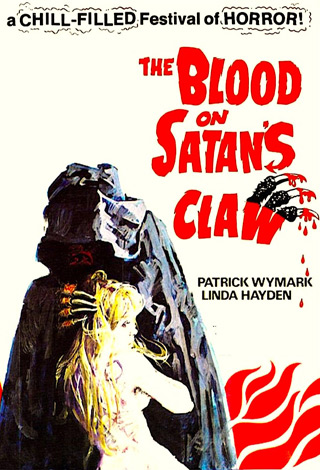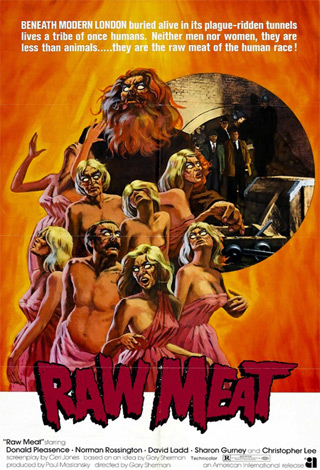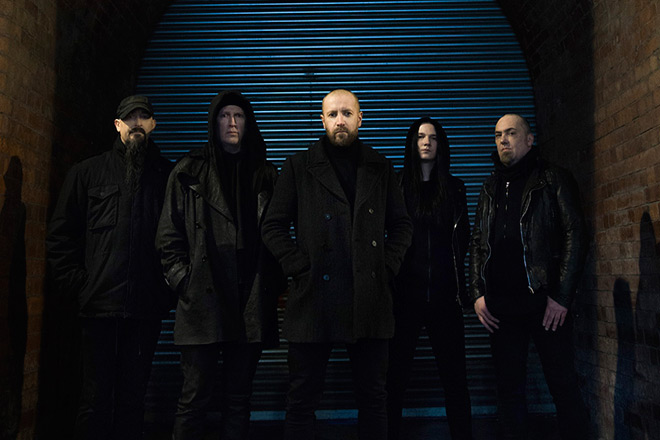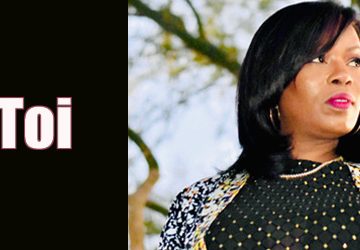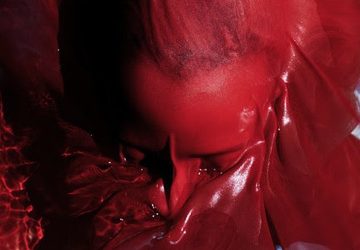Forever and always, Paradise Lost are the Gothic Metal standard. One of the essential Doom Metal acts to emerge from the UK at the dawn of the ’90s, Paradise Lost has forged a path which is unique and distinct.
Putting out sixteenth studio albums over a three plus decade period, including 2020’s Obsidian, they have managed to weave in and out of styles, while somehow always keeping a fresh approach. Staying true to themselves, in many respects, Obsidian is no different than their previous albums. However, when reflecting back years from now, it could be viewed as the album that brought everything Paradise Lost is together in one impeccably well drawn out recording.
A testament to a band that never seems to draw blanks, Paradise Lost’s Nick Holmes recently sat down to chat about the work behind Obsidian, experiencing change, finding a safe haven within the music, plus a whole lot more.
Cryptic Rock – Last we spoke Paradise Lost had just come off the release of 2017’s Medusa and were actively touring. Since then, what have the past few years been like for the band?
Nick Holmes – Great. We did our first headlining US tour. We’ve been in the US a few times, but it was the first time we ever did that. It was really great and a memorable tour. We also did our usual European touring and festivals. That all brings us right around to recording the new album, Obsidian. Three years goes really fast once you start touring, it goes in the blink of an eye.
Cryptic Rock – Absolutely. It is wonderful you were able to do that headlining US tour, it was a long time coming. Early on, Paradise Lost did not come to the United States too often because you were concentrating on the European market.
Nick Holmes – Yeah, we always wanted to come over to the USA. The thing is it’s very expense to tour there. It was really great, and hopefully we can do it again in 2021 if all this virus stuff is long gone.
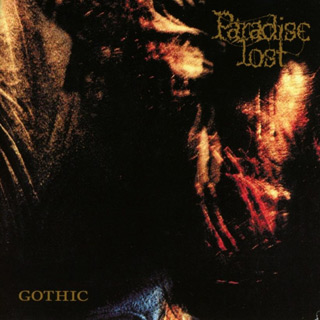
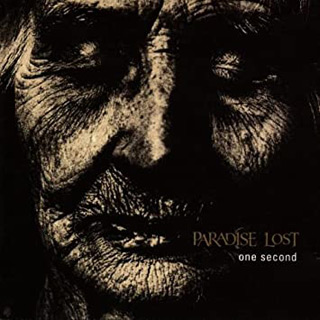
Cryptic Rock – That would be great to see happen. We have spoken about how Paradise Lost has never really been phased by outside opinion, and it has been three decades of doing what you want and following your own creative instincts. The new album, Obsidian, is a very interesting record. It is a mix of everything you have ever done bundled in one neat package. What was it like putting the album together?
Nick Holmes – We always use the last album as a benchmark for where we’re going to go moving forward. When we start writing we don’t have any grand plan really. It’s just a case of, “Okay, where should we start?” We usually look at the last album and what we did on that; Obsidian is not necessarily any different from that. The first song we wrote was “Fall From Grace,” which is very reminiscent of a song from the last album. From that we moved on.
We just shook it up a little more from the last time; there is a bit more variation this time. Obviously the music we do is very dark, does what we do, and that’s what we have always done. We also just wanted to make it as heavy but as dark as possible. There is not a massive map for it: it is just a case of seeing where it takes you. We are still very passionate about the songwriting process and still love the music we make. We are our own worst critics, as well, so we take everything into account when we start.
Cryptic Rock – Well, the album is fantastic. Obsidian is a little less sludgy than Medusa. Additionally, your vocals are a bit more varied than on Medusa. How did you approach the vocals for this new album? Was it whatever the music called for?
Nick Holmes – Yeah, totally. Everything you hear I probably tried every single vocal style on that section or melody; I try every single vocal I can and it’s about just what sounds right. You can put a clean singing line to a really heavy riff, and it just doesn’t have the impact as a full growling voice would; and vice versa: you can kill an acoustic section with a growling voice. It is about whatever fits the part.
I try everything, though. I also try not to do anything that is out of my range or that I am uncomfortable doing. Sometimes melody lines I hear in my head are not necessarily melody lines I can do; it’s about doing what I can do within my capabilities. There are some melody lines that arrive that I think Geoff Tate could sing beautifully, but unfortunately I don’t have his range. (Laughs) I have to stick to what I know.
Cryptic Rock – Understandable. We have also spoken about how Paradise Lost decided to go back to more Doom/Death roots over the last few albums leading up to Obsidian. This in mind, you have expanded your range as a singer throughout the years. When you decided you were going to start singing, was it something you knew you had the capability of doing prior to bringing it to Paradise Lost?
Nick Holmes – Not at all. I had been a big fan of Death Metal for quite a few years before we started. I started to get into the more extreme music around 1984-1985, so I’ve been a fan for many years. Around the time of 1993, I kind of had grown a little bit tired of doing it though. I used to have a lot of throat problems with it, and I got a little bit tired of being one-dimensional. It was always about the music being quite varied, but the vocal style was always the same. Maybe that is just where I was at that time and what I was listening to.
The voice on Shades of God (1992) is kind of in between; it’s kind of a hybrid growl/clean. It’s kind of a strange thing, and it all works on that album, but it’s a very difficult thing to do and it used to rip my voice out. I had to change that again. Then we did Icon (1993) which is a lot more clean. That is a style I also find hard to do as well actually. It’s a very demanding voice style to do, but it certainly was not as hard to do as the Shades of God stuff. It’s nice to be able to do more and use my voice more like an instrument. As far as a singer, in a traditional sense, it was always about being a Death Metal vocalist when we started the band.
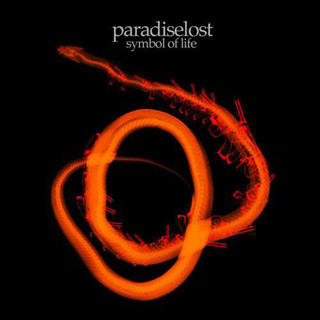
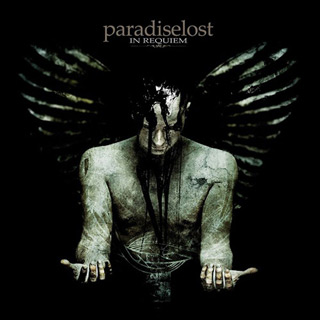
Cryptic Rock – It is very interesting to hear the growth in your voice from album to album.
Nick Holmes – My voice has changed anyway. Even the growling stuff is not the same as the first few albums. When I listen to the vocals on the first two albums, I can tell it’s a young guy doing that voice. Whereas now I sound like an old bear, I guess. (Laughs) Your voice definitely changes, whether you like it or not.
Cryptic Rock – (Laughs) Very good analogy. As you mentioned, Paradise Lost writes dark music. What was your mindset while writing Obsidian?
Nick Holmes – Every album’s the same for me from a vocal perspective: it’s all about writing lyrics that work, and how the music makes me feel when I’m writing them. I go to a specific place. For example, it’s somewhat like the visual aspect and a narrative of a film. It’s the words that work at the time; they can be very ambiguous. I don’t necessarily have to rely on sense to enjoy something.
My lyrics are very much based on things I experience and things I see other people experience. They are also in three year increments, because I’m a little bit older each time I write them. I write about the same things very often, though. I find what makes people tick in life very interesting. I am interested in what people like, what they don’t like, and why people agree and disagree. It’s not necessarily about right or wrong, but it’s fascinating to talk about what makes the world go around.
Cryptic Rock – Exactly. What is also interesting is the lyrical content of Paradise Lost is dark, but that does not necessarily mean you live in darkness. Music is an artistic form of expression. Some would say it is their therapy and they are generally happy in life. Is that a similar situation for you?
Nick Holmes – Music for me is more about escapism. I wouldn’t say it’s therapeutic in that respect. When I am writing lyrics or we’re working on songs, I get the same buzz I do as when I’m watching a good film. It’s an interest, something I love doing, and I’ve been fortunate enough to turn it into a career, as well.
As far as therapy goes – I don’t know, maybe. (Laughs) It’s not something I consciously recognize. Then again, I’m generally a pretty happy person. Everyone has dark moments, but generally speaking, I’m pretty happy and chappy, I guess. (Laughs)
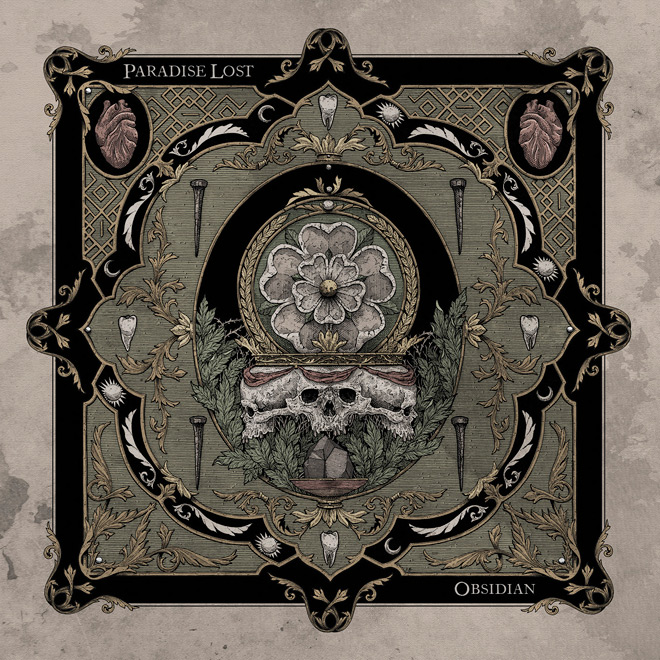
Cryptic Rock – Right, it is escapism as you said.
Nick Holmes – Right. When I was younger I used to love painting and art. It is not something I have done a lot since I’m an adult, but I used to love that. Writing songs has a very similar feeling I think.
Cryptic Rock – Agreed. Beyond Paradise Lost, you have also been working with Blood Bath. Is anything new on the horizon for Blood Bath?
Nick Holmes – Yeah, I talk to the guys every day. We had quite a lot of festival plans this year, which are obviously not happening now. We also had an American tour planned; this is the third time we’ve had to cancel because of various reasons. Hopefully we can come to America again and commit to those dates in 2021. In the meantime we are kind of sniffing around at doing another album. The guys in Katatonia recently released another album, as well, and they are obviously a part of Blood Bath. We will see what happens. We still love doing it and are looking forward to getting out there again.
Cryptic Rock – That is good news. Unfortunately the pandemic has paused everyone’s lives.
Nick Holmes – Yes, but that universally has happened for everyone. It’s just a case of putting a finger on the pause button and we will see how long before we can remove it.
Cryptic Rock – Good point. Some artists are taking this time to write new music. What are you doing during the pause? Are you taking the time to work on new music?
Nick Holmes – At the moment, no. For a while, I was pretty much on promotion for this new Paradise Lost album. I’ve never done so much promotion for any album I’ve ever done. As far as writing, I’m sure a lot of people are doing stuff. There is a certain amount of uncertainty in the world, and I don’t find uncertainty particularly constructive or positive. I like to feel happy to write music. The uncertainty doesn’t make me feel creative, if that makes sense.
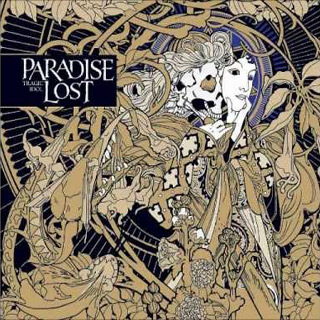

Cryptic Rock – It makes a lot of sense. Well, we have Obsidian in the meantime. Would you agree this is maybe one of the most eclectic albums that Paradise Lost has done?
Nick Holmes – Yeah, I think we’ve done a lot of varied albums. I think under the modern/latter years of our career it’s quite varied. It’s very much under the umbrella of Paradise Lost; we’re not going to wander off and do Flamenco or Jazz. It’s still very much Paradise Lost: I doubt there isn’t any song that you wouldn’t not recognize as a Paradise Lost song. It’s nice to explore and try to make songs as heavy as they can be, as dark as they can be, but also, maybe something you can hear as well as not just noise. We’ve always been about writing songs rather than thinking about if it’s extreme.
Cryptic Rock – It shows that it has always been the music with Paradise Lost. You recognize that your voice has changed, and we all change over time. Our tastes change too. That said, what have you been enjoying musically?
Nick Holmes – I have been rediscovering bands I had forgotten about that I liked when I was a teenager. I’ve been saying this for years, but the time period between being 14 and 25 years old, the bands you like then, are probably the ones you are going to like all your life. They are bands that stay with you. I’m not opposed to new bands, there are lots of great new ones that come along. I can listen to 100 new bands and maybe like one of them. I’m very picky with new stuff.
I’m rediscovering things I’d forgotten about; maybe old Death Metal bands that didn’t even make it to vinyl. I’m doing the same with films: I’m watching ’70s films I didn’t realize existed or had forgotten about. It’s quite nice! There is a rich history of music and I’m enjoying the nostalgia trip. That’s what I’m doing during lockdown in the evenings. (Laughs)
Cryptic Rock – Sometimes the old stuff is the best. Have you been watching any older ’70s Horror films lately?
Nick Holmes – I’ve been watching quite a few recently. There is a lot I watched when I was a kid, and maybe they didn’t have much meaning, but now that I’m older and have hindsight they do. I have been watching The Abominable Dr. Phibes films with Vincent Price. I find a lot of the old films are kind of macabre and shocking.
There is a 1972 film called Raw Meat which I had never seen before. It’s a great film to watch and very macabre. I have also been watching The Blood on Satan’s Claw (1971), Hands of the Ripper (1971), and I’ve been going through the old Hammer films. I love modern films, as well, but I think the ’70s is very good. The ’80s got a little bit Glam Rock, I think. The ’70s is more my kind of thing.
